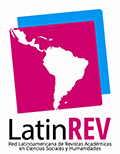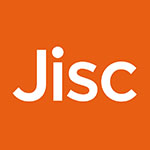China y la gobernanza global financiera del ambiente en el siglo XXI
Análisis de sus características y narrativas y los casos del Banco de Desarrollo de China y el Banco Asiático de Inversión en Infraestructura
DOI:
https://doi.org/10.26422/RPA.2024.0302.codPalabras clave:
China, gobernanza financiera global, gobernanza global del ambiente, Banco de Desarrollo de China, Banco Asiático de Inversión en InfraestructuraResumen
Las crisis permanentes de múltiples sistemas globales interactúan de tal manera que ponen en riesgo las perspectivas de la humanidad. La crisis climática y la crisis financiera, dos emergentes en la agenda internacional de la última oleada globalizadora del siglo XX, se han propagado e intensificado hasta la actualidad. En ese contexto, China resulta, en el siglo XXI, un actor relevante para la gobernanza financiera del ambiente por sus dimensiones materiales de poder económico-financiero-tecnológico, por ser uno de los mayores emisores de GEI y por su avance en la construcción de narrativas estratégicas globales de su administración de gobierno actual. En este ensayo, se propone analizar a China y la gobernanza global financiera del ambiente dando cuenta de sus características y narrativas y de dos instituciones: el Banco de Desarrollo de China (CDB) y el Banco Asiático de Inversión en Infraestructura (AIIB).
Descargas
Referencias
Andronova I. y Shelepov A. (2018). Engagement between the New Development Bank and Other Development Banks: A Formal Basis for Future Cooperation. International Organisations Research Journal, 13(1). 99-113. https://iorj.hse.ru/data/2018/05/23/1149409492/Engagement%20between%20the%20New%20Development%20B..al%20Basis%20for%20Future%20Cooperation.pdf.
Banco Asiático de Inversión en Infraestructura. (2 de noviembre de 2021). Collective Climate Ambition: A Joint Statement at COP26 by the Multilateral Development Banks. https://www.aiib.org/en/news-events/news/2021/_download/COP26-Joint-MDB-Climate-AmbitionStatement.pdf.
Banco Asiático de Inversión en Infraestructura. (2023a). Members and prospective members of the Bank. https://www.aiib.org/en/about-aiib/governance/members-of-bank/index.html.
Banco Asiático de Inversión en Infraestructura. (2023b). Articles of agreement. https://www.aiib.org/en/about-aiib/basic-documents/articles-of-agreement/index.html.
Banco Asiático de Inversión en Infraestructura. (2023c). Who we are. Infrastructure for tomorrow. https://www.aiib.org/en/about-aiib/who-we-are/infrastructure-for-tomorrow/overview/index.html.
Banco Asiático de Inversión en Infraestructura. (2023d). Energy Sector Strategy: Sustainable Energy for Tomorrow. https://www.aiib.org/en/policies-strategies/strategies/sustainable-energy-asia/.content/index/_download/AIIB-Energy-Sector-Strategy-Update_Final_Nov-2022.pdf.
Banco Central Europeo. (2020). Guía sobre riesgos relacionados con el clima y el ambiente. Expectativas supervisoras en materia de gestión y comunicación de riesgos. https://www.bankingsupervision.europa.eu/ecb/pub/pdf/ssm.202011finalguideonclimate-relatedandenvironmentalrisks~58213f6564.es.pdf.
Barone, B. y Spratt, S. (2015). Development Banks from the BRICS. Institute of Development Studies. Evidence Report 111,(2), 20-37. www.ids.ac.uk/publications/development-banks-from-the-brics.
Bo, Y. (2019). China’s Role in Global Climate Governance and Causal Analysis. En Wang, W y Liu, Y. (Eds), Annual Report on China’s Response to Climate Change (2017). Research Series on the Chinese Dream and China’s Development Path (pp. 39-48). Springer. https://doi.org/10.1007/978-981-13-9660-1_5.
China Banking Regulatory Commission. (2014). Notice of the China Banking Regulatory Commission on Key Performance Indicators of Green Credit Implementation. CBRC General Office. No. 186. https://www.cbirc.gov.cn/en/view/pages/ItemDetail.html?docId=68037&itemId=981.
China Development Bank. (2023). About CBD. https://www.cdb.com.cn/English/gykh_512/khjj/.
Chen, M. (2019). State Actors, Market Games: Credit Guarantees and the Funding of China Development Bank. New Political Economy, 25(3), 453-468. https://doi.org/10.1080/13563467.2019.1613353.
Chin, G. T. y Gallagher, K. P. (2019). Coordinated Credit Spaces: The Globalization of Chinese Development Finance. Development and Change, 50(1), 245-274. https://doi.org/10.1111/dech.12470.
Clean Energy Transition. (2021). Statement on International Public Support for the Clean Energy Transition. The National Archives. https://ukcop26.org/statement-on-international-public-support-for-the-clean-energy-transition/.
Dialogue Earth. (24 de octubre de 2022). Opinión: Exigimos una mayor participación pública y salvaguardas al BAII. https://dialogochino.net/es/comercio-y-inversiones-es/59762-opinion-exigimos-una-mayor-participacion-publica-y-salvaguardas-al-baii/.
Domínguez, R. y Velázquez Flores, R. (2018). Global Governace. Oxford Research Encyclopedia of International Studies. https://oxfordre.com/internationalstudies/view/10.1093/acrefore/9780190846626.001.0001/acrefore-9780190846626-e-508.
Environmental and Social Framework. (2021). Banco Asiático de Inversión en Infraestructura. https://www.aiib.org/en/policies-strategies/strategies/corporate-strategy.html
Farand, C. (11 de septiembre de 2020). Asian multilateral bank promises to end coal-related financing. Climate Home News. https://www.climatechangenews.com/2020/09/11/asian-multilateral-bank-promises-end-coal-related-financing.
Fondo Monetario Internacional. (12 de abril de 2023). Las tasas más altas de inflación y de interés ponen a prueba al sistema financiero mundial. FMI Blog. https://www.imf.org/es/Blogs/Articles/2023/04/11/global-financial-system-tested-by-higher-inflation-and-interest-rates.
Friends of the Earth United States. (2017). Investing in a Green Belt and Road? Assessing the Implementation of China’s Green Credit Guidelines Abroad. https://foe.org/wp-content/uploads/2017/12/ChinaGreenBelt_Dec2017.pdf.
Gallagher, K. P., Irwin, A. y Koleski, K. (2012). The New Banks in Town: Chinese Finance in Latin America. Inter-American Dialogue, 1-10. https://www.thedialogue.org/wp-content/uploads/2012/02/IAD8542_China_Abstract_021512e2-finalabstract_1.pdf.
Gerlo, J. y Slipak, A. (2022). Los financistas silenciosos. ¿Qué son las agencias de crédito a la exportación? ¿Pueden tener un rol en la transición energética? Fundación Ambiente y Recursos Naturales. https://farn.org.ar/wp-content/uploads/2022/12/DOC_ECA_links.pdf.
Hong, P. (2017). Strengthening national policy capacity for jointly building the Belt and Road towards the Sustainable Development Goals. Department of Economic and Social Affairs, United Nations. https://www.un.org/development/desa/dpad/wp-content/uploads/sites/45/publication/2017_cdas_beltandroadb.pdf.
Intergovernmental Panel on Climate Change. (2022). Climate Change 2022: Impacts, Adaptation and Vulnerability. https://www.ipcc.ch/report/ar6/wg2.
Lawrence, M., Janzwood, S. y Homer-Dixon, T. (2022). What Is a Global Polycrisis? And how is it different from a systemic risk? Cascade Institute. https://cascadeinstitute.org/wp-content/uploads/2022/04/What-is-a-global-polycrisis-v2.pdf.
Liu, W., Dunford, M. y Gao, B. (2018). A discursive construction of the Belt and Road Initiative: From neo-liberal to inclusive globalization. Journal of Geographical Sciences, 28(9), 1199-1214. https://doi.org/10.1007/s11442-018-1520-y.
Macfarlane, L. y Mazzucato, M. (2018). State Investment Banks and Patient Finance: An International Comparison. UCL Institute for Innovation and Public Purpose. Working Paper Series. https://www.ucl.ac.uk/bartlett/public-purpose/publications/2018/feb/state-investment-banks-and-patient-finance-international-comparison-0.
Mazzucato, M. y Semieniuk, G. (2018). Financing renewable energy: Who is financing what and why it matters. Technological Forecasting and Social Change, (127), 8-22. https://doi.org/10.1016/j.techfore.2017.05.021.
Miller Clark A. (2007). Democratization, International Knowledge Institutions, and Global Governance. Governance: An International Journal of Policy, Administration, and Institutions, 20(2), 325-357. https://doi.org/10.1111/j.1468-0491.2007.00359.x.
Naciones Unidas. (2015a). Cambio climático. Abordar el cambio climático. Objetivos de Desarrollo Sostenible. https://www.un.org/sustainabledevelopment/es/climate-action/.
Naciones Unidas. (2015b). Acuerdo de París. https://unfccc.int/sites/default/files/spanish_paris_agreement.pdf.
Naciones Unidas. (2019). Informe de los Objetivos de Desarrollo Sostenible. https://unstats.un.org/sdgs/report/2019/The-Sustainable-Development-Goals-Report-2019_Spanish.pdf
Nathan, A. J. y Zhang, B. (2021). “A shared future for mankind”: Rhetoric and reality in Chinese foreign policy under Xi Jinping. Journal of Contemporary China, 31(133), 57-71. https://doi.org/10.1080/10670564.2021.1926091.
Focus 2030. (2023). Sumit for a New Global Financing Pact. https://focus2030.org/Summit-for-a-New-Global-Financing-Pact-towards-more-commitments-to-meet-the
Oil Change International. (1 de noviembre de 2022). At a Crossroads: Assessing G20 and MDB international energy finance ahead of stop funding fossils pledge deadline. https://archive.oilchange.org/2022/11/01/g20-at-a-crossroads/.
Oil Change International. (Abril de 2024). Public Enemies: Assessing MDB and G20 international finance Institutions energy finance. https://www.oilchange.org/wp-content/uploads/2024/04/G20-Public-Enemies-April-2024.pdf.
Qin, Y. (2016). A Relational Theory of World Politics. International Studies Review, 18(1), 33-47. https://doi.org/10.1093/isr/viv031.
Rosenau, J. N. y Czempiel, E. O. (1992). Governance without Government: Order and Change in World Politics. Cambridge University Press. https://doi.org/10.1017/CBO9780511521775.
Slipak, A. (2016). Políticas de la República Popular de China ante el Cambio Climático, su Seguridad Energética e implicancias para América Latina. II° Congreso de Economía Política Internacional. Universidad Nacional de Moreno. Buenos Aires, Argentina, 9 y 10 de noviembre de 2016. http://www.cepi.unm.edu.ar/ii-cepi-documento-de-resumenes/.
Slipak, A. y Ghiotto, L. (2019). América Latina en la Nueva Ruta de la Seda. El rol de las inversiones chinas en la región en un contexto de disputa (inter) hegemónica. Cuadernos del CEL, IV(7), 1-30. http://www.celcuadernos.com.ar/upload/pdf/2.%20Slipak%20y%20Ghiotto.pdf.
United Nations Conference on Trade and Development. (2023). A world of debt. A growing burden to global prosperity. Report 2024. https://unctad.org/publication/world-of-debt.
United Nations Environment Programme. (27 de octubre de 2022). Emissions Gap Report 2022. https://www.unep.org/resources/emissions-gap-report-2022.
Wang, H. (2019). The New Development Bank and the Asian Infrastructure Investment Bank: China's Ambiguous Approach to Global Financial Governance. Development and Change, 50(1), 221-244. https://onlinelibrary.wiley.com/doi/epdf/10.1111/dech.12473.
Wang, Y. (2016). The Sustainable Infrastructure Finance of China Development Bank: Composition, Experience and Policy Implications. Global Economic Governance Initiative, Boston University. www.bu.edu/pardeeschool/files/2016/07/Wang.New_.Final_.pdf.
Wang, Z., He, H. y Fan, M. (2014). The Ecological Civilization Debate in China: The Role of Ecological Marxism and Constructive Postmodernism-Beyond the Predicament of Legislation. Monthly Review, 66(6), 37-59. https://monthlyreview.org/2014/11/01/the-ecological-civilization-debate-in-china/.
Weiss, T. G. y Wilkinson, R. (2014). Rethinking global governance? Complexity, authority, power, change. International Studies Quarterly, 58(1), 207-215. https://doi.org/10.1111/isqu.12082.
Xu, Q. (2018). China Development Bank: Born Bankrupt, Born Shaper. En Griffith Jones, S. y Ocampo, J. A. (Eds.), The Future of National Development Banks (pp. 1-38). Cambridge University Press. https://academic.oup.com/book/35971/chapter-abstract/311579929?redirectedFrom=fulltext
Yang Yi, E. (2020). China’s Strategic Narratives in Global Governance Reform under Xi Jinping. Journal of Contemporary China, 30(128), 299-313. https://doi.org/10.1080/10670564.2020.1790904.
Zhang, H. (2020). Regulating Green Bond in China: Definition Divergence and Implications for Policy Making. Journal of Sustainable Finance & Investment, 10(2), 141-156. https://doi.org/10.1080/20430795.2019.1706310.
Zhang, Y. y Orbie, J. (2019). Strategic narratives in China’s climate policy: Analysing three phases in China’s discourse coalition. The Pacific Review, 34(1), 1-28. https://doi.org/10.1080/09512748.2019.1637366.
Zhao, X, y Qi, Y. (2022). Three Decades of Climate Policymaking in China: A View of Learning. Sustainability, 14(4). https://www.mdpi.com/2071-1050/14/4/2202.
Zhou, W. y Esteban, M. (2018). Beyond Balancing: China’s approach towards the Belt and Road Initiative. Journal of Contemporary China, 27(112), 487-501. https://doi.org/10.1080/10670564.2018.1433476.
Zurn, M. (2012). Global governance as multi-level governance. En Levi-Faur, D. (Ed.), Oxford handbook of governance, 51, 730-743. Oxford University Press. https://wzb.eu/system/files/docs/ipl/gg/global_governance_as_multi-level_governance.pdf.
Publicado
Número
Sección
Licencia
Esta licencia permite copiar, distribuir, exhibir y representar la obra siempre y cuando se reconozca la autoría y se cite la obra de la forma adecuada. No se permite el uso comercial de la obra original ni la generación de obras derivadas.
Los autores garantizan a la Revista Política Austral el derecho de ser la primera publicación del trabajo.



































